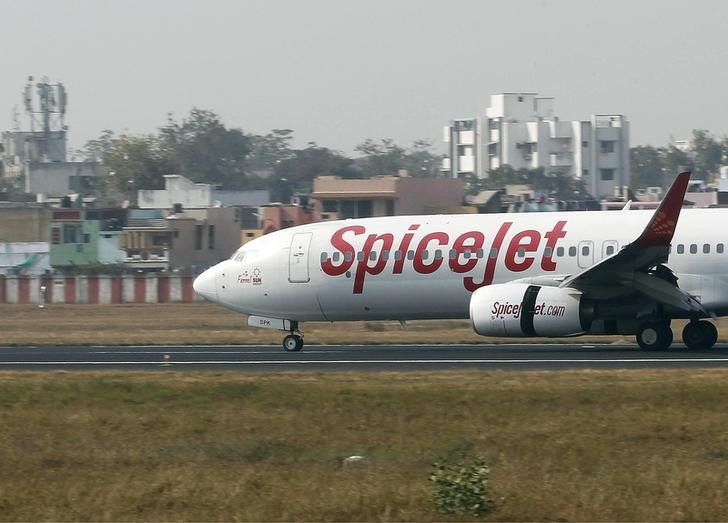By Tim Hepher
DUBLIN (Reuters) - India faces growing pressure over financial uncertainty at budget carrier SpiceJet after leasing company BOC Aviation demanded the return of three leased aircraft, in what is seen as a test of global rules on aircraft investments.
The leasing arm of Bank of China warned in an interview that India's fast-growing airline industry could struggle to attract funds unless India upholds a pact designed to protect the owners of leased jets, widely used across the world.
"SpiceJet is a very frustrating situation," Chief Executive Robert Martin told Reuters.
"Obviously when we lease planes we like people to pay us. And if they don't pay us, then generally the way an operating lessor reacts is by moving its planes to somewhere else in the world."
India's Economic Times this week reported lessors wanted permission to retrieve 11 jets.
BOC Aviation said it had asked for three Boeing 737s to removed from the Indian register, a step towards repossession.
The Singapore firm is among half a dozen lessors with exposure to SpiceJet, which is trying to finalise a new shareholder structure and cash lifeline.
Others involved include Canada's export credit agency, which financed 15 Bombardier Q400 turboprops worth $450 million at list prices. A spokesman said it had not yet asked for these to be deregistered and was working with the carrier.
SpiceJet said it was trying to resolve any disputes.
"In general with the imminent change of ownership and re-capitalization, we expect all matters related to payables to be resolved soon in co-operation with our partners and suppliers, and are in regular contact with them," Sanjiv Kapoor, SpiceJet's Chief Operating Officer, said by email.
It is the second such standoff in as many years after lessors clashed with now-inactive Kingfisher Airlines over Airbus jets.
But financiers are watching SpiceJet's case especially closely because it is the first formal test, in one of the world's biggest markets, of the so-called Cape Town Convention.
The 2001 pact is a key part of efforts to harmonize trade with developing countries that dominate aircraft demand, but which is only now being implemented in key markets like India.
In return for 10 percent cheaper fees, the pact gives owners clearer rights to pull assets in the event of default.
Martin said ignoring the pact would hurt other carriers.
"It means the industry will be less interested in leasing planes to India, relative to other jurisdictions," he said.
Airlines have 60 days to return planes, but officials said SpiceJet still had time to meet this deadline.

(This story adds lessor's full name in second reference and in headline)